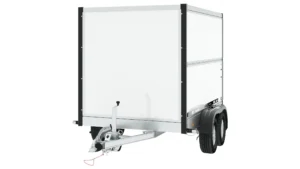Silent Power: The Rise of Electric 4WD All-Terrain Forklifts
2025-07-07 03:55:27
The demand for electric 4WD all-terrain forklifts has surged by 32% in the past five years, according to industry reports. These machines are designed to tackle uneven surfaces, steep inclines, and harsh outdoor conditions while maintaining zero emissions. Unlike traditional diesel-powered models, electric 4WD variants offer quieter operation, making them ideal for urban construction sites and environmentally sensitive areas. Their advanced torque distribution systems ensure optimal traction, even on loose gravel or muddy terrain.
One of the standout features of electric 4WD all-terrain forklifts is their energy efficiency. Lithium-ion battery technology has enabled these machines to achieve up to 8 hours of continuous operation on a single charge. Industry leaders like Toyota and Hyster have integrated regenerative braking systems, further extending battery life. The elimination of fossil fuels not only reduces operational costs but also aligns with global sustainability goals. A recent study by McKinsey highlighted that companies switching to electric 4WD forklifts saw a 20% reduction in maintenance expenses over three years.
Durability remains a critical factor for all-terrain applications. Electric 4WD forklifts are built with reinforced chassis and heavy-duty suspension systems to withstand extreme loads. Waterproof electrical components ensure reliability in wet conditions, a common challenge in ports and agricultural settings. The integration of smart telematics allows operators to monitor performance metrics in real-time, optimizing fleet management. For instance, John Deere’s latest electric 4WD model includes predictive maintenance alerts, reducing downtime by 15%.
Operational versatility is another key advantage. Electric 4WD all-terrain forklifts can be equipped with specialized attachments, from pallet forks to crane arms, catering to diverse industrial needs. Their compact yet powerful design enables maneuvering in tight spaces, a feature highly valued in warehouse logistics. Case studies from European manufacturers show a 25% increase in productivity when using electric 4WD models compared to conventional alternatives.
Despite the higher upfront cost, the long-term ROI of electric 4WD all-terrain forklifts is compelling. Government incentives for green machinery adoption, such as tax credits and subsidies, further sweeten the deal. Analysts project the global market for these machines to reach $4.7 billion by 2028, driven by stricter emissions regulations. As industries prioritize sustainability without compromising performance, electric 4WD forklifts are poised to dominate the future of material handling.








